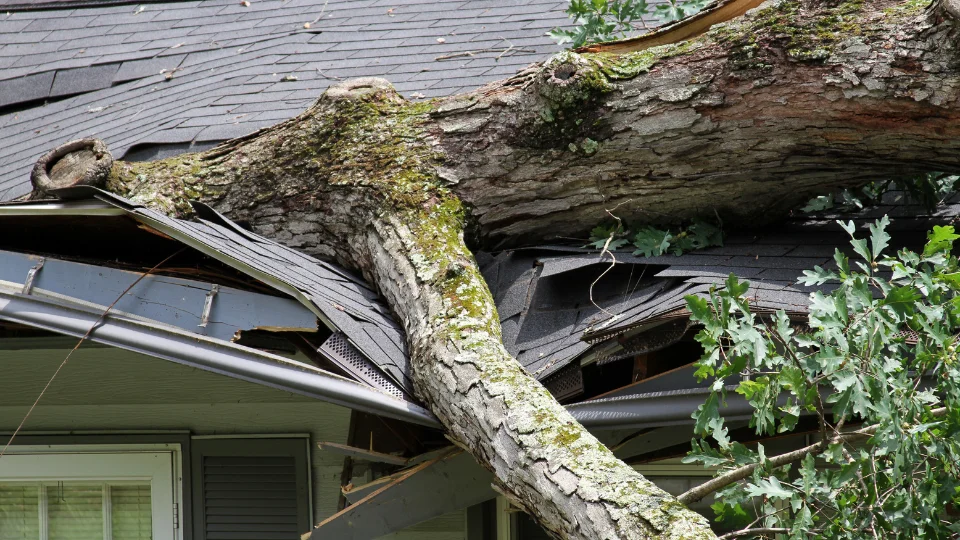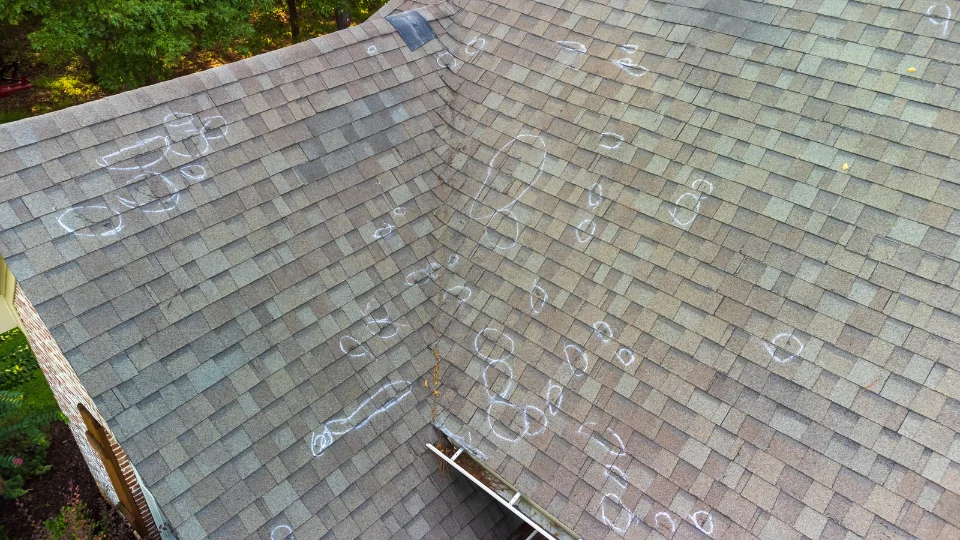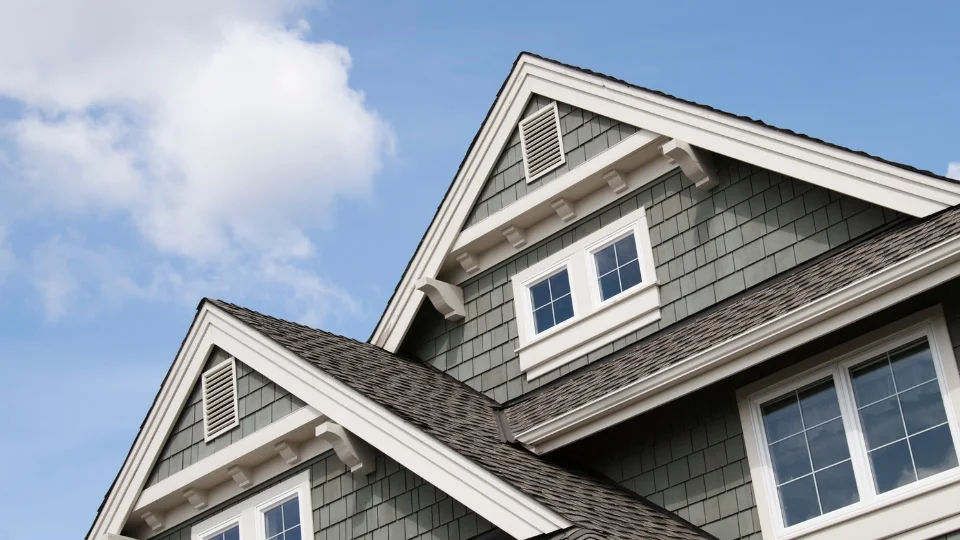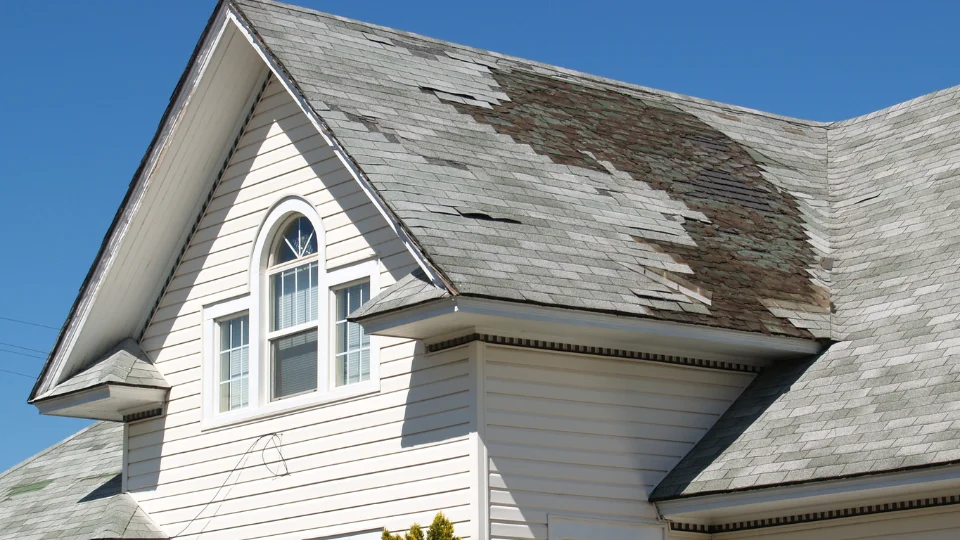Choosing the right approach for a commercial roof installation can be challenging. A poor roofing job leads to leaks, damages, and increased costs down the line. This blog will guide you through best practices for a quality commercial roof installation from start to finish.
Keep reading; your roof depends on it.
Understanding Commercial Roofing Systems
Understanding the various types of commercial roofing systems, such as metal roofing, single-ply membrane, built-up roofing (BUR), modified bitumen roofing, and roof coating systems is crucial for successful installation.
Each system has different properties and installation requirements necessary for durability and longevity.
Metal Roofing
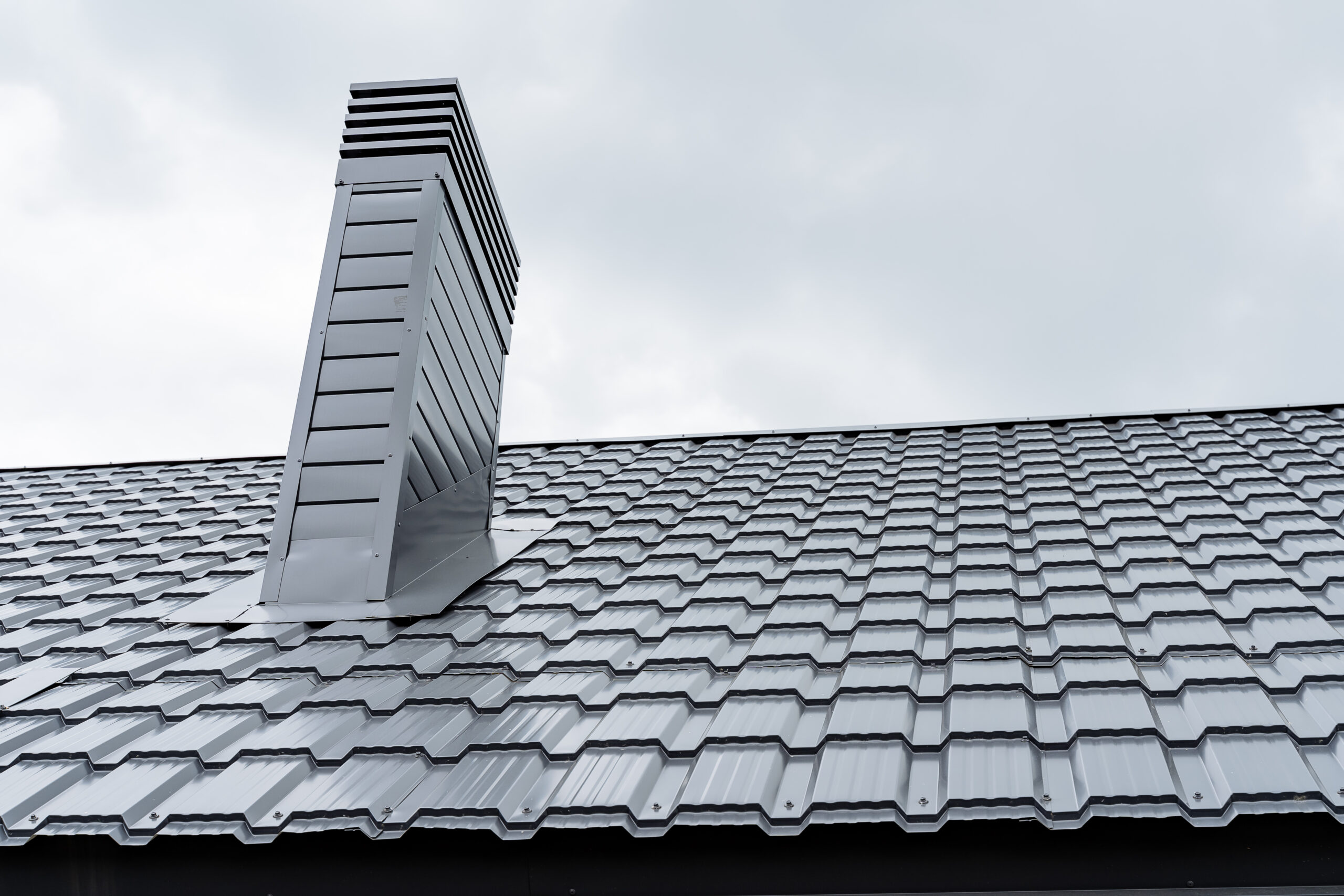
Metal roofing distinguishes itself within the commercial sector due to its longevity and sustainability. This roofing material, with maintenance, can endure for over half a century, positioning it as an economical option for proprietors wishing to commit to lasting roofing solutions.
Metal roofs are recognized for their resilience as well as exceptional protection against severe weather events, such as high winds, torrential rain, and snow.
Choosing metal roofing represents a step towards environmental responsibility. Production of these roofs frequently uses recycled materials, and they can be completely recycled after their use.
Their ability to reflect solar radiant heat may decrease cooling expenses by up to 25%. These qualities of energy conservation are in harmony with the highest standards for commercial roof installation, supporting environmental preservation as well as financial savings.
Single Ply Membrane
Single ply membrane stands out as a top choice for commercial roofing due to its durability and flexibility. Roofing professionals often prefer this material for its ease of installation and ability to withstand extreme weather conditions.
This roofing option offers a lightweight yet strong solution, making it ideal for buildings with low-slope or flat roofs. Its single-layer construction promotes quicker installation times compared to multi-layer systems like Built-Up Roofing (BUR).
Roof maintenance becomes simpler with single ply membrane due to its high resistance against UV radiation, which significantly extends the roof’s lifespan by preventing deterioration from sun exposure.
Many businesses opt for this roofing material because it helps reduce cooling costs, thanks to its reflective properties that minimize heat absorption. Installers can choose from various methods such as mechanical attachment, ballasting, or using adhesives, allowing for flexibility depending on the building’s specific needs.
This adaptability makes single ply membrane an efficient choice reflecting best practices in both sustainability and energy efficiency in commercial roofing installations.
Built-Up Roofing (BUR)
Built-Up Roofing (BUR) demonstrates its resilience as a solid selection for commercial buildings, giving layers of defense against environmental pressures. The procedure involves the routine of alternating layers of asphalt or tar with reinforcing fabrics directly on the roof deck, sealed with a layer of aggregate such as stone or gravel.
This system establishes a uniform sealed surface, excelling in waterproofing and durability.
Experts often favor BUR for its established history in performance and dependability. This technique’s past extends over a century, highlighting its capacity to endure challenging weather conditions while preserving its quality.
The multi-layered strategy provides not just strong defense, but also contributes to thermal insulation, leading to decreased energy expenditures for warming and cooling commercial areas.
Modified Bitumen Roofing
Transitioning from Built-Up Roofing (BUR) to Modified Bitumen Roofing, it’s worth noting that modified bitumen roofing is a durable and long-lasting option for commercial buildings.
This type of roofing material is constructed with asphalt-based materials mixed with modifiers like rubber or plastic, creating a flexible and weather-resistant membrane. The combination of toughness and flexibility makes modified bitumen an ideal choice for flat and low-slope roofs.
Modified bitumen roofing systems are intended to improve the longevity of commercial roofs while providing exceptional protection against extreme weather conditions. These systems also offer excellent puncture resistance, ensuring durability in high-traffic areas.
When selecting roofing materials for your commercial building, considering modified bitumen can provide both cost-effective installation and years of reliable performance.
“Modified bitumen roofing offers great versatility and durability in safeguarding commercial buildings against various environmental factors.
Roof Coating Systems
Roof coating systems offer an effective means to safeguard and prolong the lifespan of commercial roofs. These coatings are crafted to improve sustainability, durability, and energy efficiency.
By utilizing a reflective roof coating, businesses can diminish the need for frequent roof repairs and decrease energy costs through enhanced insulation. Furthermore, roof coatings aid in preserving the structural integrity of the building by averting water infiltration and minimizing UV damage.
The application process requires thorough preparation and precise techniques. Roofing contractors meticulously clean and repair any damaged areas before applying the coating. Once applied, these systems provide outstanding protection against weathering and environmental elements while also contributing to a reduction in greenhouse gas emissions.
Many roofing professionals view roof coating systems as a cost-effective solution that aligns with sustainable roofing practices, making it an increasingly popular choice among commercial property owners seeking more than traditional roofing materials.
Best Practices for a Quality Commercial Roof Installation
Ensuring proper licensing and certifications is crucial for quality commercial roof installation. Thorough project estimation, careful material selection, precise installation techniques, and a comprehensive inspection process are essential elements of best practices in the industry.
Proper Licensing and Certifications
Contractors should possess the necessary licenses and certifications to ensure compliance with industry standards and regulations. This ensures that they are qualified to undertake commercial roof installations, adhering to construction standards and roofing industry guidelines.
By acquiring proper licensing and certifications, contractors demonstrate their expertise in installing durable, sustainable roofing systems. This not just demonstrates their commitment to quality installation methods but also provides clients with confidence in the ethical business practices of the selected contractor.
Furthermore, roofing system warranties often depend on using licensed professionals for installation. Roofing materials sustainability is optimized when expert commercial roofers are employed due to their proven knowledge in handling complexities involved in this field.
Essentially, proper licensing and certification acts as evidence of a contractor’s dedication towards delivering exceptional workmanship in line with construction standards.
Thorough Project Estimation
Thorough project estimation is vital for a successful commercial roof installation. It entails precisely evaluating the scope of work, material needs, and labor expenses. This process aids in preventing cost overruns and project delays.
By conducting a comprehensive project estimation, roofing contractors can furnish clients with precise quotations and ensure the allocation of necessary resources for a seamless installation process.
Proper project estimation also facilitates meticulous planning concerning timelines and scheduling. Furthermore, it aids in identifying any potential challenges or issues that may emerge during the installation process.
Adequately estimated projects are more likely to remain within budget and be wrapped up on time, leading to enhanced customer satisfaction.
Careful Material Selection
When choosing materials for a commercial roof installation, it is crucial to think about durability, sustainability, and long-term performance. High-quality roofing materials play a significant role in the overall lifespan of the roof and can minimize maintenance and repair costs over time.
Assessing factors like weather resistance, energy efficiency, and environmental impact can aid in choosing the appropriate materials that comply with industry guidelines and construction standards.
Moreover, taking into account the warranty provided by manufacturers for the chosen roofing materials can offer added assurance for building owners.
Thoughtful material selection forms the foundation of a successful commercial roof installation process. It not only ensures top-notch work but also contributes to the sustainability of the building while adhering to ethical business practices in accordance with present-day construction standards.
Grasping these aspects helps in addressing the challenges associated with commercial roofing systems and choosing customized solutions to establish a long-lasting and eco-friendly roofing system.
Precise Installation Techniques
To ensure the durability and effectiveness of a commercial roofing system, precise installation techniques are crucial. Properly aligning and securing each roofing component according to manufacturer specifications is essential for maintaining the warranty validity and overall performance of the roof.
Following industry guidelines when installing materials such as metal roofing, single ply membrane, built-up roofing (BUR), modified bitumen roofing, and roof coating systems is vital to prevent potential leaks or premature deterioration.
Moreover, executing accurate flashing details around penetrations and ensuring proper drainage are key components of precise installation techniques that contribute to the long-term sustainability of the commercial roof.
Moreover, paying close attention to detail during the installation process plays a significant role in preventing issues such as sagging or ponding water on the roof surface. By adhering to construction standards and employing best practices when applying adhesive or fastening materials, expert commercial roofing contractors can deliver quality workmanship while meeting client expectations for a durable and reliable roofing system.
Comprehensive Inspection Process
After the precise installation techniques are completed, a comprehensive inspection process is crucial to ensure that the commercial roof has been installed to meet industry standards.
The inspection should cover all aspects of the roofing system, including checking for proper material installation, confirming flashing and drainage systems, and assessing overall workmanship.
This thorough examination ensures that any potential issues are identified and addressed promptly before they become major problems. It’s a critical step in maintaining the integrity and longevity of the roof.
Regular inspections also play a crucial role in identifying areas for maintenance or repairs, promoting sustainability by preventing premature roof failure due to undetected issues such as leaks or structural damage.
Furthermore, conducting routine inspections can help uphold warranties on roofing materials or installations, providing peace of mind for building owners and facility managers. Therefore, implementing a comprehensive inspection process as part of regular maintenance practices is essential for maximizing the lifespan and durability of commercial roofing systems while ensuring their continued high performance.
Cost Considerations and Timelines
Factors influencing costs play a significant role in planning for a roof replacement. Regular maintenance is vital to the longevity of commercial roofing, and effective budgeting is essential.
Factors that Affect Cost
Several elements play crucial roles in determining the overall cost of commercial roof installations. Here’s a breakdown in table format to simplify understanding:
| Factor | Impact on Cost |
| Material Type | Materials like metal and single-ply membranes vary in price, influencing the final cost. |
| Roof Size | Larger roofs require more materials and labor, increasing the project cost. |
| Roof Complexity | Features like slopes, angles, and the number of penetrations can complicate the installation, leading to higher costs. |
| Labor Costs | Skilled labor is essential for quality installation, and labor rates can vary significantly by location. |
| Geographical Location | Material and labor costs can vary depending on the region, influencing the project’s total price. |
| Removal of Existing Roof | The complexity and scope of removing an existing roof can add to the overall cost. |
| Permitting Fees | Different municipalities have varying fees for construction and roofing permits. |
| Insulation and Ventilation | Improving insulation and ventilation can increase energy efficiency but may also add to the upfront cost. |
Each factor requires careful consideration during the planning and budgeting phases of a commercial roof installation project. Selecting the right materials and understanding the scope of work can help manage the budget effectively.
Planning for a Roof Replacement
When planning for a roof replacement, it is crucial to consider several factors that can impact the cost and timeline. Factors such as the size of the commercial building, type of roofing material, and any necessary repairs or enhancements contribute to the overall project estimation.
It’s important to consult with a professional roofing contractor who can provide a detailed assessment customized to your specific needs. Moreover, regular maintenance plays a vital role in extending the lifespan of your commercial roof, reducing the frequency of replacements and minimizing long-term costs associated with extensive damage or deterioration.
The Importance of Regular Maintenance
Regular maintenance is critical to ensure the long-term performance of a commercial roofing system. It aids in identifying small issues before they become major problems, ultimately saving money on extensive repairs or premature replacement.
Furthermore, regular inspections can help uphold the energy efficiency of the building by promptly addressing any insulation or ventilation concerns. Maintenance also plays a crucial role in upholding warranties provided by manufacturers, as many warranties require proper care and upkeep to remain valid.
Additionally, routine maintenance guarantees that the roof continues to provide protection against weather elements and environmental stresses. This proactive approach can significantly extend the life span of the roofing system while preserving its structural integrity.
With sustainable materials gaining popularity in commercial construction, regular maintenance becomes even more crucial to ensure their prolonged lifespan and sustainability benefits are realized.
Choosing the Right Commercial Roofing Contractor
When selecting a commercial roofing contractor, consider their experience and expertise. Assess the quality of their work, reputation, and customer reviews to ensure satisfaction with the project outcome.
Use of modern technology and warranty support are also key factors in making your decision.
Experience and Expertise
Experienced and expertise play a crucial role in choosing the right commercial roofing contractor. A company with extensive experience has likely encountered a variety of roofing challenges, equipping them to handle any situation that may arise during your project.
Look for a contractor with a proven track record of successful installations and repairs. For example, Landmark Roofing has over 15 years of experience in professional roofing installation, making it a reliable choice for your commercial roofing needs.
Additionally, expertise ensures that the contractor is well-versed in the latest industry guidelines and construction standards, providing you with quality workmanship and peace of mind.
A reputable contractor like Landmark Roofing not only brings significant experience but also boasts expertise in utilizing modern technology to enhance their services. This includes advanced techniques for precise installations and comprehensive inspections using state-of-the-art equipment.
Such capabilities showcase their commitment to delivering top-notch results while ensuring sustainability, durability, and adherence to ethical business practices.
Quality of Work
Commercial roofing contractors with a strong commitment to quality work play a crucial role in ensuring the longevity and performance of your building’s roof. Expert commercial roofers meticulously follow construction standards and roofing industry guidelines to deliver top-notch installations that stand the test of time.
They leverage their expertise and use customized roofing installation methods to provide sustainable, durable, and highly functional commercial roofing systems. Furthermore, these professionals offer comprehensive warranties and strong post-installation support, providing you with peace of mind knowing that your investment is protected for years to come.
A dedicated focus on quality not only supports their work but also positions them as leaders in an ever-changing realm of commercial roof installation best practices. With a dedication towards ethical business practices, these professionals ensure that every project adheres to the highest construction standards while incorporating modern technology to enhance precision and efficiency.
By striving for excellence in every aspect of their craft – from material sustainability to superior durability – they consistently set new benchmarks within the commercial roofing domain.
Reputation and Customer Reviews
Quality customer reviews and a solid reputation are crucial factors to consider when choosing a commercial roofing contractor. Positive feedback from past clients can provide insight into the contractor’s work ethic, reliability, and the quality of their installations.
Before making a decision, take the time to read through customer reviews as they often highlight key strengths or potential areas for improvement. A reputable commercial roofing contractor will gladly share testimonials and references with potential clients, showcasing their track record of successful projects and satisfied customers.
In addition, it’s essential to assess the contractor’s reputation within the industry. Collaborating with a well-respected company ensures that you are working with professionals who adhere to ethical business practices and maintain high standards of craftsmanship.
By selecting a roofing contractor with an established positive reputation in your area – one known for delivering exceptional results and excellent customer service – you can feel confident about entrusting them with your commercial roof installation project.
Use of Modern Technology
Commercial roofing contractors are increasingly using modern technology to improve the quality and efficiency of their installations. Advanced software and drone technology are being utilized for precise measurements, accurate estimations, and project planning.
This not only ensures a more streamlined process but also helps in avoiding costly mistakes during the installation. Additionally, thermal imaging is employed for comprehensive roof inspections to identify potential issues before they escalate.
Furthermore, the use of state-of-the-art equipment aids in achieving better workmanship and faster completion times.
Furthermore, innovative roofing materials such as cool roofs with reflective surfaces or integrated solar panels contribute to sustainability efforts while providing long-term cost savings for commercial building owners.
These advancements underline the commitment of modern commercial roofing contractors to deliver high-quality installations that meet evolving industry standards.
Warranty and Post-Installation Support
Transitioning from the importance of using modern technology, a reputable commercial roofing contractor should also offer robust warranty and post-installation support. This is crucial for ensuring that your investment is protected and any potential issues that may arise after installation are promptly addressed.
A comprehensive warranty provides assurance and peace of mind that your roof will be supported in the long term, while reliable post-installation support demonstrates the contractor’s commitment to customer satisfaction.
Customers can expect quality contractors to provide warranties ranging from 10 to 25 years, depending on the type of roofing system installed. The warranty should cover materials, workmanship, and even specific aspects such as leaks or repairs.
An effective post-installation support plan typically includes regular inspections and maintenance services to prolong the lifespan of the roof, promoting sustainability through proactive care and attention to details.
Trust Landmark Roofing
In conclusion, it’s crucial to implement best practices for a quality commercial roof installation. By ensuring proper licensing, thorough estimation, careful material selection, precise installation techniques, and comprehensive inspections, businesses can achieve lasting and dependable roofing systems.
These strategies are practical to apply and can lead to significant enhancements in sustainability, durability, and maintenance efficiency. For further guidance or services on commercial roofing installations, contact Landmark Roofing today!
Keep in mind that investing in quality installation pays off in the long run for your business’s success!
FAQs
1. What are the key factors for a quality commercial roof installation?
Key factors for ensuring a quality commercial roof installation include proper material selection, skilled labor, adherence to industry standards, and thorough inspection processes.
2. How can I ensure the durability of my commercial roof?
To ensure the durability of your commercial roof, it is essential to prioritize meticulous installation practices, regular maintenance checks, and using high-quality materials designed for longevity.
3. What role does weatherproofing play in commercial roof installations?
Weatherproofing is crucial in commercial roof installations as it helps protect the building from environmental elements such as rain, wind, and snow which could potentially cause damage if not properly managed.
4. Why is professional expertise important in commercial roof installations?
Professional expertise is vital in ensuring that all aspects of the installation process adhere to best practices and industry standards while also guaranteeing that safety protocols are strictly followed throughout the project.



